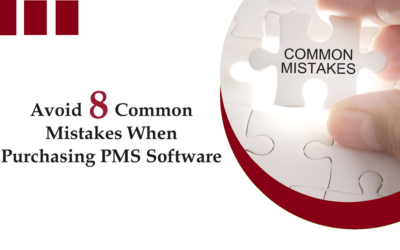
Mobile app development is a rapidly growing industry that has become a significant part of our daily lives. With the increasing use of smartphones and tablets, having an effective mobile strategy has become essential for businesses to reach their target audience. In this blog post, we’ll explore successful business strategies for mobile app development that can help you create a unique selling proposition, ensure a strong user experience, choose the right features for your app, distribute and market it effectively, and measure its success. So let’s dive in!
The Importance of a Mobile Strategy
Having a mobile strategy is crucial for every business in today’s digital age. A well-thought-out mobile strategy can help you stay ahead of the competition, increase your brand visibility and credibility, and ultimately drive revenue growth.
Mobile apps provide businesses with a unique opportunity to connect with their customers on-the-go. With almost 4 billion people using smartphones worldwide, it’s no surprise that mobile apps have become an integral part of our daily lives.
A successful mobile app development strategy should take into consideration aspects such as target audience, market trends, user behavior patterns, and the overall goals of the business. By understanding these factors, businesses can create customized solutions that meet their specific needs.
Moreover, having a strong mobile presence helps build trust among your customers by providing them with easy access to information about your products or services at any time from anywhere. Additionally, it also allows you to collect valuable data about user behavior which can be used to enhance future marketing campaigns and improve customer engagement.
Investing in developing an effective mobile strategy has become essential for businesses who want to thrive in today’s competitive landscape.
Define Your Target Audience
Before starting any mobile app development project, it is essential to define your target audience. Knowing your audience will help you design an app that meets their needs and preferences. Consider factors such as age, gender, occupation, location, and interests when defining your target audience. You can also conduct market research and gather user feedback to gain a better understanding of your target audience.
Developing a Unique Selling Proposition
Developing a Unique Selling Proposition is crucial when it comes to mobile app development strategies. A USP, as it’s commonly referred to, is what sets your app apart from competitors and helps you stand out in the crowded app marketplace.
To create a successful USP, you first need to understand your target audience and their needs. Identifying the problems they face can help you develop features that address those pain points while also differentiating yourself from other apps.
Next, think about what makes your app unique compared to others on the market. What value does it bring that no one else does? This could be anything from innovative technology or design to exclusive partnerships or content.
Once you’ve identified your unique selling proposition, make sure it’s clear and easily communicated through all aspects of your marketing efforts. Use language that resonates with your target audience and emphasizes how your app solves their specific problems better than anyone else.
Choose the Right Platform
Choosing the right platform is another critical factor in the success of your mobile app. You need to decide whether to develop a native app, a web app, or a hybrid app. Native apps are platform-specific and offer superior performance, while web apps are platform-independent and easier to develop. Hybrid
Creating a Strong User Experience
When it comes to mobile app development, creating a strong user experience is crucial. Users are quick to judge and even quicker to delete an app that doesn’t meet their expectations. Here are some tips on how you can create a great user experience for your app:
Your app should be easy to use, intuitive, and visually appealing. Focus on the user journey, and ensure that the app is designed with the end-user in mind. Conduct usability testing and gather user feedback to improve the UX.
The Right Features for Your App
When it comes to developing a successful mobile app, having the right features is crucial. You want to make sure that your app meets the needs and expectations of your target audience while also standing out from competitors in the market.
One important aspect to consider when deciding on features for your app is user feedback. Conducting surveys or focus groups can provide valuable insights into what users are looking for in an app and what they find lacking in current options.
Another key factor is considering which features will add value to your app without overwhelming users. It’s important not to include too many features that could clutter the user experience or make navigation confusing.
In addition, keeping up with industry trends can help guide feature development decisions. For example, incorporating voice-activated commands or augmented reality capabilities may be appealing to users who are looking for cutting-edge technology in their apps.
Ultimately, choosing the right mix of features for your mobile app requires careful consideration of both user needs and industry trends. By striking a balance between these factors, you’ll be able to create an engaging and unique product that stands out from competitors and meets the needs of your target audience.
App Distribution and Marketing
Marketing is critical for the success of any mobile app. You need to plan your marketing strategy well in advance and consider factors such as app store optimization (ASO), social media marketing, email marketing, and influencer marketing. Use data analytics tools to track your app’s performance and adjust your marketing strategy accordingly.
Consider Security and Privacy
Security and privacy are becoming increasingly important in the mobile app market. Users expect their personal data to be secure, and any breach of privacy can damage your app’s reputation. Implement robust security measures and ensure that your app complies with the relevant data privacy regulations.
Measuring App Success
Measuring the success of your mobile app is crucial to determining its effectiveness and identifying areas for improvement. There are several metrics that can be used to measure app success, including downloads, user engagement, retention rate, revenue generated, and customer feedback.
By regularly tracking these metrics you’ll have a better understanding of what drives user engagement and retention while identifying opportunities for growth within your mobile application strategy.
Conclusion
In today’s business landscape, having a mobile strategy is no longer an option but a necessity. With the increasing use of smartphones and mobile devices, companies must have a strong presence in the app market to remain competitive.
To achieve success in Mobile App Development strategies, businesses need to focus on developing a unique selling proposition that sets their app apart from others. This should be coupled with creating a strong user experience that incorporates the right features for your target audience.
Once you have developed your app, you need to ensure it is distributed effectively and marketed correctly through various channels to reach your desired audience. Measuring its success using analytical tools will allow you to make informed decisions on how best to move forward.
By following these successful business strategies for Mobile App Development, businesses can increase engagement levels with their customers while driving growth and revenue for their company.





0 Comments